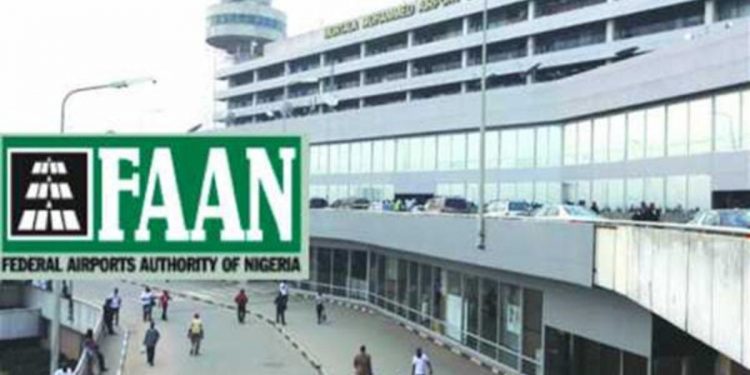Olubunmi Kuku, Managing Director of the Federal Airports Authority of Nigeria (FAAN), has revealed that the authority requires N580 billion for the rehabilitation of runways across the country, as many have surpassed their expected lifespan.
Kuku made this statement during a tour of the Murtala Muhammed International Airport (MMIA) by the new Permanent Secretary of the Ministry of Aviation and Aerospace Development, Kana Ibrahim, on Wednesday.
She explained that airport runways typically have a lifespan of 20 to 25 years, with many of Nigeria’s runways, built in 1978, now showing signs of aging.
Kuku highlighted that numerous FAAN facilities, including terminals and runways, are in dire need of repairs and upgrades.
Other challenges facing FAAN, according to Kuku, include outdated infrastructure, obsolete equipment, land encroachment, security concerns, financial limitations, and the lack of suitable office complexes, all of which impact operational efficiency and safety. She stressed that substantial investment is essential for modernization.
Despite these challenges, Kuku disclosed that FAAN generated N343 billion from January to November 2024 and remitted N128.7 billion to the federation’s coffers in the same year. Looking ahead, she said FAAN aims to increase its revenue in 2025 by implementing innovative strategies to enhance non-aeronautical revenue, including commercial concessions, advertising, real estate development, and cargo operations.
She also indicated that FAAN would explore public-private partnerships to attract investment and develop underutilized assets in 2025.
Furthermore, Kuku shared plans to invest in advanced security systems, including biometric screening and state-of-the-art surveillance technologies, to meet global aviation standards. Staff training in aviation security and safety would also be intensified to address emerging industry risks.
“FAAN will upgrade and maintain e-procurement systems to reduce technical downtimes, and align its goals with national aviation policies and international standards,” she added.
“We will also integrate environmentally sustainable practices, focusing on energy efficiency, waste management, and carbon emission reductions.”
Kuku emphasized that improving critical facilities at major international airports and expanding regional airport capacity to meet rising passenger and cargo demands will be prioritized.
In his address, Permanent Secretary Kana Ibrahim praised FAAN’s leadership and structural framework, commending Kuku’s efforts in enhancing operational efficiency and service delivery. He reaffirmed the Ministry’s full support for FAAN in sustaining its development momentum and prioritizing comprehensive personnel training for long-term sustainability.
“The aviation sector demands constant innovation and expertise,” Ibrahim said. “I urge everyone to contribute to the improvement of the system. Together, we can elevate Nigeria’s aviation industry to global standards.”
Ibrahim also credited the achievements at FAAN to the visionary leadership of Festus Keyamo, SAN, the Minister of Aviation and Aerospace Development.
